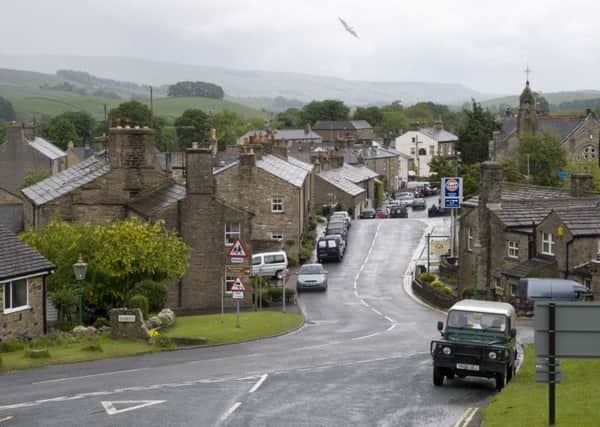Government may have lost sight of urban and rural link


Whilst I scope plans for my time as the new chair of the Local Enterprise Partnership, I feel this is something we need to take account of. This is why economic development has been devolved to local partnerships like ours: so that we can truly reflect the local concerns.
Clearly, a sorting office closing doesn’t have the same devastating economic impact as a steel works shutting up shop. However, it will nevertheless have a profound impact on the community of Hawes, and on the lives of the people living there including rural business. It is a microcosm of the issues we face, and something an organisation like our needs to be alive to, when the Government seems half blind to rural issues whilst dazzled by the opportunities and issues of our cities.
Advertisement
Hide AdAdvertisement
Hide AdWhen I hear talk of Industrial Strategy, I feel we should be asking where is the Rural Industrial Strategy?
I worry that Government in Whitehall has lost sight of the interplay between urban and rural. It is impossible for them to understand that what makes the North special is the mix of urban and rural.
Of course, our fabulous coast and countryside provide a fantastic playground for the residents of Leeds, Bradford and Manchester, but they provide much more than that. This living and working landscape provides a raft of benefits from clear water to fresh air, food production to flood alleviation, and it even helps mitigate against climate change as our vast uplands store millions of tonnes of greenhouse gases.
We can see that change is happening now as austerity continues to bite, whilst efficiency dissipates its gradual impact on communities bit by bit.
Advertisement
Hide AdAdvertisement
Hide AdWe know there is more to come as Brexit drives the withdrawal of Common Agricultural Policy payments to farmers, against a backdrop of global pressures on land use. Natural resources are increasingly pressured as we seek to feed a growing global population. We are not immune to this, as the farming done in the fields of Hambleton or on the Wolds is part of a global commodities market which is highly connected and responds to economic and political inputs.
All these issues demand a proactive response driven by a deep appreciation of the economics underpinning our communities. This is what I believe the Local Enterprise Partnership is here for, to deepen that understanding, to be a voice in the corridors of power, and to draw on the expertise and resources of all our partners in coordinating a response.
We are uniquely positioned between national government, local government, institutions and local businesses. A glance at our website will show that we are already rising to the challenge of articulating what the future holds for our area, to inform how we can make the most of it.
This is just the start of a process that will culminate in a local version of Government’s Industrial Strategy, our Rural Industrial Strategy if you will. I’m excited by an offer University of York have made to help drive this work, coordinating the resources and expertise of all our colleges and universities.
Advertisement
Hide AdAdvertisement
Hide AdIt’s a great example of how local institutions have a huge amount more to contribute beyond their core remit. We need to make it easy, and inspiring, for them to consider their wider contribution.
Change brings opportunities that we have to grasp, whether that means working with the MOD to make the most of their hugely significant presence in the region and taking advantage of supply chain opportunities created, or supporting farmers managing the land to provide public benefits. These issues are uniquely rural in nature, and need intelligent ambitious advocates, which I believe we are.
As we look to the future, we know that digital technology will continue to revolutionise the entire world.
Oddly, the effects may be most profoundly felt in the countryside which has previously been constrained by geography.
Advertisement
Hide AdAdvertisement
Hide AdAs the world gets smaller, and people become increasingly mobile, our towns and villages will find a whole new way of functioning. Just as we need services like shops and post offices now, increasingly we will need broadband and mobile infrastructure, along with the offices and workplaces of the future.
Bid for Rural Industrial Strategy
By planning for the future we can ensure we’re making the most of the contributions of all our partners, and ensuring that our area is characterised by living and breathing communities into the 21st century and beyond.
I honestly believe that a Rural Industrial Strategy will be every bit as exciting as a City Deal, just in our own way. We have a great network ready and willing to make it happen.
Now all we need is the recognition from Government that its needed, and believe me that recognition is not going to be without effort on my part to ensure we secure a bright future for our rural region.